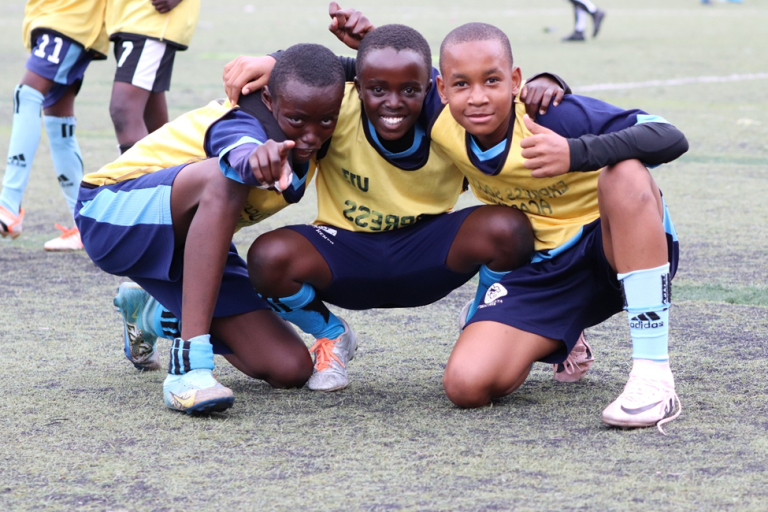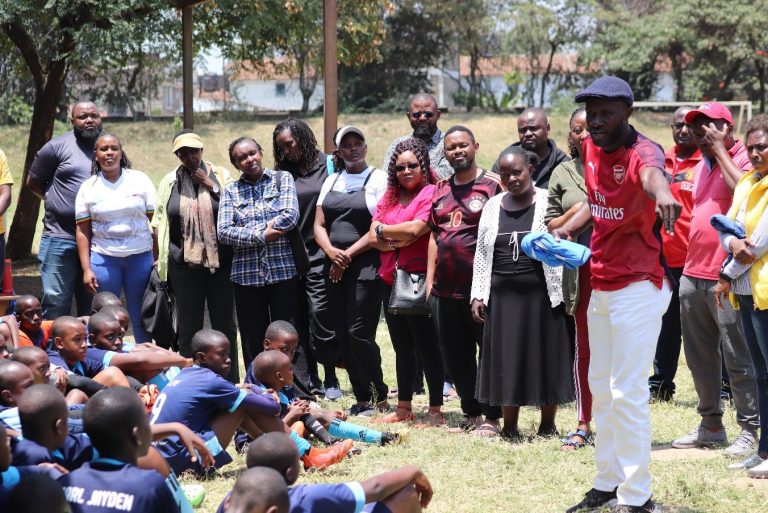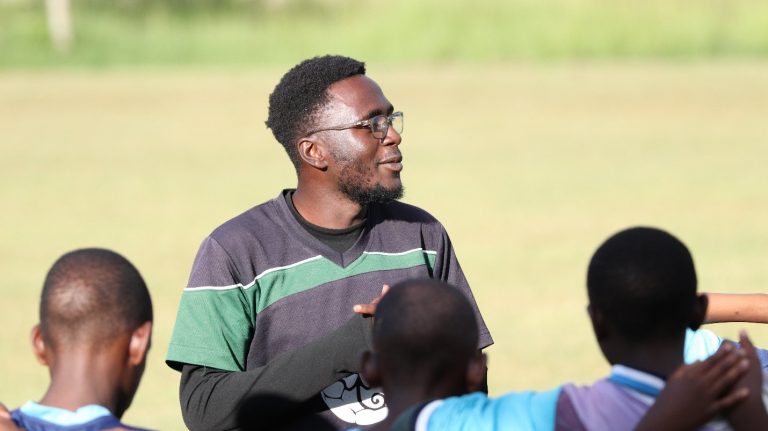
In June 2025, Green-Kenya, in collaboration with Coaches Across Continents, conducted a comprehensive safeguarding training aimed at equipping community coaches with the knowledge and tools necessary to protect children participating in sports. Held in the heart of Mathare, this training brought together 28 grassroots football coaches who collectively work with over 1358 children in the community. Recognizing that coaches are often the first line of defense when it comes to child safety, the training focused on creating safe, inclusive, and empowering environments where children can thrive both on and off the field.
The session was grounded in practical, real-life scenarios that local coaches encounter daily. Participants explored topics such as identifying signs of abuse, establishing safe boundaries, understanding child rights, and recognizing the coach’s role in preventing and responding to harmful behaviors. Interactive sessions encouraged open discussions around sensitive issues like gender-based violence, peer-to-peer bullying, and the psychological impact of emotional neglect. By anchoring the content in lived experiences from Mathare, coaches were able to see how safeguarding goes beyond theory and is critical for the well-being of every child they coach.
One of the highlights of the training was the emphasis on creating a Safeguarding Policy for Coaches, co-developed with Mathare Coaches Forum to ensure local relevance and buy-in. This Policy should outline clear expectations on ethical behavior, professional boundaries, and reporting mechanisms in case of violations. Coaches were guided on how to engage parents and caregivers in safeguarding efforts, emphasizing that child protection is a collective responsibility. They also discussed how safeguarding measures can help restore trust between young athletes and adult leaders, especially in communities where children often face multiple forms of vulnerability.

Through role-play, storytelling, and group activities, coaches learned to reflect on their attitudes and assumptions that might unintentionally put children at risk. David Mulo from Green-Kenya, who doubles up as satellite manager for Coaches Across Continents, used participatory methods to make the learning environment safe and engaging, helping coaches feel more confident in handling disclosures of abuse, navigating complex situations, and using sport as a tool for healing and resilience. The session also touched on how safeguarding intersects with gender equality and inclusion, reminding coaches to be mindful of the specific risks faced by girls, children with disabilities, and marginalized groups.

Ultimately, the Mathare safeguarding training was more than just a workshop it was a movement toward transforming community sports into a safe haven for children. By empowering local coaches with knowledge, skills, and confidence, Green-Kenya and the Coaches across continents have taken a bold step toward institutionalizing child protection in grassroots sports. The ripple effect of this training is already being felt as coaches return to their respective areas with renewed commitment to putting the safety, dignity, and rights of children at the center of their work. Safeguarding is no longer just an add-on; it is now a core value embedded in the spirit of sports for development in Mathare.



